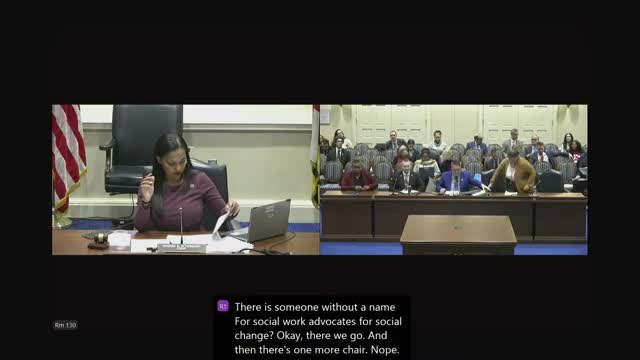Bill would let parties opt into ranked-choice voting in presidential primaries, backers say it could boost turnout
Get AI-powered insights, summaries, and transcripts
Subscribe
Summary
House Bill 215 would allow political parties to use ranked-choice voting in presidential primaries beginning in 2028, supporters said. Proponents argued the method reduces wasted votes and increases participation among independents and young voters; opponents raised questions about costs and voter education.
House Bill 215 would permit Maryland political parties to opt into ranked-choice voting (RCV) for presidential primaries beginning in 2028, sponsor Delegate Chris Fair said at the Jan. 28 Ways and Means hearing.
Supporters — including student leaders, veterans’ voting advocates, nonprofit groups and ranked-choice proponents — told the committee RCV gives voters more options, reduces ‘‘wasted’’ votes when candidates drop out and can increase participation among independents and younger voters. Witnesses cited New York City and recent municipal and statewide RCV pilots as evidence that voters learn the system quickly and that turnout and registration can increase where RCV is used.
Speakers said the bill would be voluntary for parties, not mandatory. Advocates described operational pathways and told the committee tabulation could be integrated into existing election systems with planning and voter education; they urged funding and Board of Elections leadership on voter outreach.
Opponents argued costs and implementation difficulty can be substantial, and researchers have produced mixed findings on impacts for polarization, candidate diversity and turnout. One witness cited a University of Minnesota study raising concerns that RCV does not automatically reduce negativity in campaigning or increase diversity of officeholders. Committee members questioned fiscal and education plans; supporters said the 2028 effective date allows time for planning and public information campaigns led by election officials and civic groups.
Ending note: Proponents asked the committee for a favorable report; opponents urged careful study of costs and implementation before adoption. No vote was recorded during the hearing.
